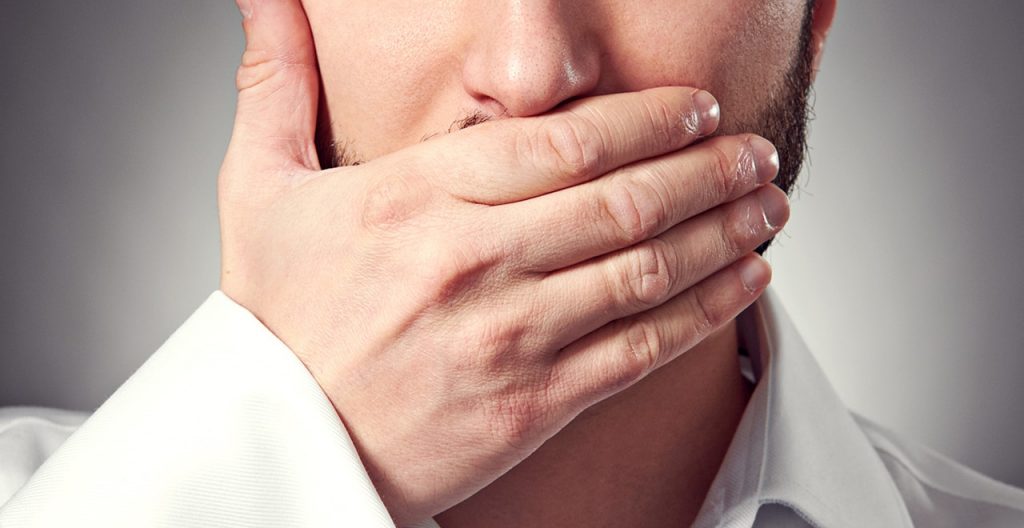Dental Checkups
Interdental Brushes for Extraordinary Plaque Removal

Interdental brushes are used to clean in between teeth that ordinary toothbrushing can’t reach. With the use of this type of brush, gum disease can be prevented by eliminating food particles and interproximal plaque.
Interdental cleaning is the method of cleaning between your teeth; thus, your dentist may recommend you to use interdental brushes if interdental cleaning is advised.
Functions and Uses of Interdental Brushes
For teeth
Instead of using dental floss, use interdental brushes for cleaning wide gaps between adjacent teeth. Insert the brush into the gap between the teeth. Place the interdental brush close to the gum margin. Manoeuvre the brush back and forth to scrub neighbouring tooth surfaces.
Choosing Porcelain Fillings over Other Options

Your dentist requires you to undergo dental filling once a cavity needs to be filled. Fillings can come in a variety, but since other people opt for more natural looking, they then choose to have tooth coloured fillings. One of these is porcelain filling.
This type of filling matches the colour of the teeth, and so people are not bothered to smile or laugh given that they will not be conscious about the way their teeth looks. Also, there are many things to look forward to when it comes to porcelain fillings.
How are Porcelain Fillings placed?
- Your dentist will examine first your cavity including your past dental records. Afterwards, your dentist will prepare the enamel intended for filling by means of removing excess food debris and decay using a drill or air abrasion.
The Obvious Symptoms of Mouth Sores and its Prevention

Mouth sores are painful swellings occurring in certain parts of the mouth, which includes the lips and tongue. There are different types of mouth sores with various causes and symptoms, as well.
In mild cases, a mouth sore heal on its own for less than a week. Any mouth sore that lasts for more than a week or longer calls for a need to examine by a health professional.
Types of Mouth Sores and their Symptoms
Canker Sores
These are small white swelling bounded by an area of redness. They are not contagious compared to another kind of mouth sore, which are cold sores. Canker sores can occur inside the mouth can be minor or in clusters. They are common and often reappear. Aside from the bacteria or virus, stress, tobacco use and other vitamin deficiencies are also some of the many factors that may cause a canker sore.
Choosing the Best Toothpaste for your Teeth

Your teeth have different needs. For this reason, there are also various kinds of toothpastes made to address different teeth concerns. Other people remained satisfied with the toothpaste they were used to while some are looking for the ones that surely meet their standards. Whatever toothpaste you use, you must always consider the efficacy and safety it can bring to you and your family.
The 4 Common Types of Toothpaste
1.Fluoride Toothpaste
Fluoride is one of the most important ingredients in toothpaste that most people look for. It has two ways of protecting and strengthening your teeth. First, fluoride enhances durability of tooth enamel and prevent further acid damage. Lastly, fluoride can reverse the early phases of acid damage through remineralising the affected areas with upcoming decay.
Enjoyable Ways to Brush Baby Teeth
 Baby bottle tooth decay is one of the challenges parents might face as their little child grows up.
Baby bottle tooth decay is one of the challenges parents might face as their little child grows up.
In this case, parents must introduce and show the importance of oral hygiene to their children as early as possible.
Through this, you can help your baby gain healthy teeth and mouth for life.
Gums and Baby Teeth Care
If the baby is not yet teething, you can start the hygiene routine by cleaning their gums.This doesn’t involve the usage of toothbrush and toothpaste. Here are the steps parents must do instead:
- Use a soft, moistened piece of gauze or washcloth
- Clean your baby’s gums gently twice a day, especially after feeding
- Do the same routine before bedtime.
Stuff you Need to Know about Halitophobia
 Being conscious about the way your breath smells is absolutely normal as this is your own technique of detecting bad breath. Halitosis, the medical term for severe bad breath, is a condition that is preventable and curable.
Being conscious about the way your breath smells is absolutely normal as this is your own technique of detecting bad breath. Halitosis, the medical term for severe bad breath, is a condition that is preventable and curable.
On the other hand, there is a kind of fear that is derived from excessive fascination with having fresh breath and extreme anxiety of experiencing halitosis. Such apprehension is called halitophobia, the fear of having bad breath.
Basic Facts About Halitophobia
Before knowing the causes, effects and treatment for halitophobia, you should get to know the condition well so as to recognize its characteristics completely.
- It is also called as delusional halitosis
- Usually, patients who have halitophobia assumed that they have halitosis, when in fact they don’t have
- A person who’s suffering from this type of phobia uses various techniques to battle with; some of these can be attributed from obsessive-compulsive disorder symptoms.
- Dentists have calculated that 25% of the patients who consulted them for halitosis are afflicted with delusional halitosis.
- Severe halitophobia only affects 1% of the adult population
Grounds for Halitophobia
The Significance Of Hygienic Tongue to your Oral Health
 You might have stumbled upon a tongue scraper when you are in a store shopping for your daily needs at home.
You might have stumbled upon a tongue scraper when you are in a store shopping for your daily needs at home.
But for sure, it never came to your mind how this simple and lifeless tool could enhance your oral health extraordinarily; thus, you just walked past it and never turned for a second look. Tongue, along with your teeth and gums, requires utmost attention so you can achieve a complete package of total oral wellness.
Your tongue is not just an important part of the body used for talking and chewing food; it also plays a crucial part in your immune system and oral wellbeing. Bacteria buildup on the surface of your tongue might cause health and dental problems such as respiratory complications, digestive issues, a compromised immune system, gum disease, tooth decay and many others. Cleaning your tongue every day is an effortless yet successful method towards admirable oral health.
Tongue is A Diagnostic Device
Similar to a human’s skin, the tongue also reveals the condition of your health. It is a mirror reflection of internal organs. It is mapped out to show different parts of your internal body. Just by looking at your tongue in the morning, you can learn a lot what is happening in its certain sections. And just acupuncture, you actually stimulate and massage those internal organs through scraping your tongue.
How Vitamin C Promotes Healthy Gums
 Healthy gums are actually a promising indication that you could have a good oral health. It is just sad to know that sometimes, gums do not receive the proper attention it need unlike what most people would do in any cost with their teeth. Neglecting the health of your gums could lead to gingivitis and periodontal disease, including scurvy, which is known to be the hallmark of vitamin C deficiency.
Healthy gums are actually a promising indication that you could have a good oral health. It is just sad to know that sometimes, gums do not receive the proper attention it need unlike what most people would do in any cost with their teeth. Neglecting the health of your gums could lead to gingivitis and periodontal disease, including scurvy, which is known to be the hallmark of vitamin C deficiency.
Vitamin C has a significant role for your gum health. So if you are making steps in paying attention with your gums, eating foods that are rich in vitamin C is one of the best methods you should do first. Vitamin offers almost unlimited benefits for your gums that could free you from gum disorders.
The Goodness You Can Get from Vitamin C
Vitamin C can hinder the development of plaque and tartar. It is even considered as the invisible toothbrush; thus if you are fond of tooth brushing, results for a healthier gums and teeth may not still be convincing without sufficient amounts of vitamin C.
Paying Attention with Bad Breath Issues

Also known as halitosis in its medical term, bad breath is a condition that’s pretty common for everybody. This is a natural case though, especially if it’s caused by simple circumstances such as eating odorous foods or skipping important meals. However, this simple indication should not be neglected, particularly if having a bad breath seems to be recurrent already.
Common Causes of Bad Breath
There are two factors that trigger bad breath to occur in your mouth. These are external and internal factors. External reasons involve the type of food you eat such as spicy or odorous in nature. People who smoke and consume alcoholic drinks get higher chances of acquiring bad breath, especially if doing such vices became their everyday habit.
Internal factor happens in the vicinity of your tongue. The tongue is a ground for millions of bacteria. Numerous odour-causing bacteria produce a compound called volatile sulphur compound (VSC), which eventually leads to, of course, bad breath. The two major VSC’s that activates halitosis are known to be methyl mercaptan and hydrogen sulphide. Most of these bacteria reside at the back portion of the tongue.
How Communication With Your Dentist Affects Oral Health
 In taking proper care of your teeth, gums, and mouth, regularly seeing your dentist is just as important as brushing twice and flossing every day. That is why dental care experts continue to stress that you should visit the dentist frequently, every six months to be specific.
In taking proper care of your teeth, gums, and mouth, regularly seeing your dentist is just as important as brushing twice and flossing every day. That is why dental care experts continue to stress that you should visit the dentist frequently, every six months to be specific.
However, there can be certain aspects that prevent you from getting the most out of your dental visits. One of these issues involve the effectiveness of communication between you and your dentist.
A team of researchers from the University of Florida found out that ineffective communication can still lead to poor dental and oral health despite visiting the dental clinic regularly.
Better Communication Is Needed To Uphold Oral Health
According to the findings of the study, the difference between the expertise of dentists and the limited knowledge of patients can create a communication barrier that keeps you from forming a great and effective dentist-patient relationship with your dental care partners.









